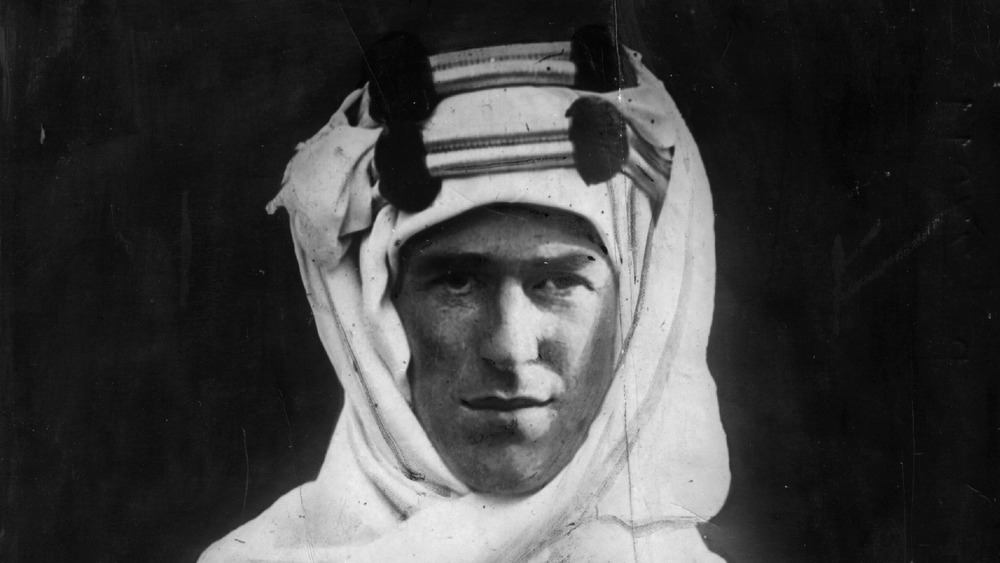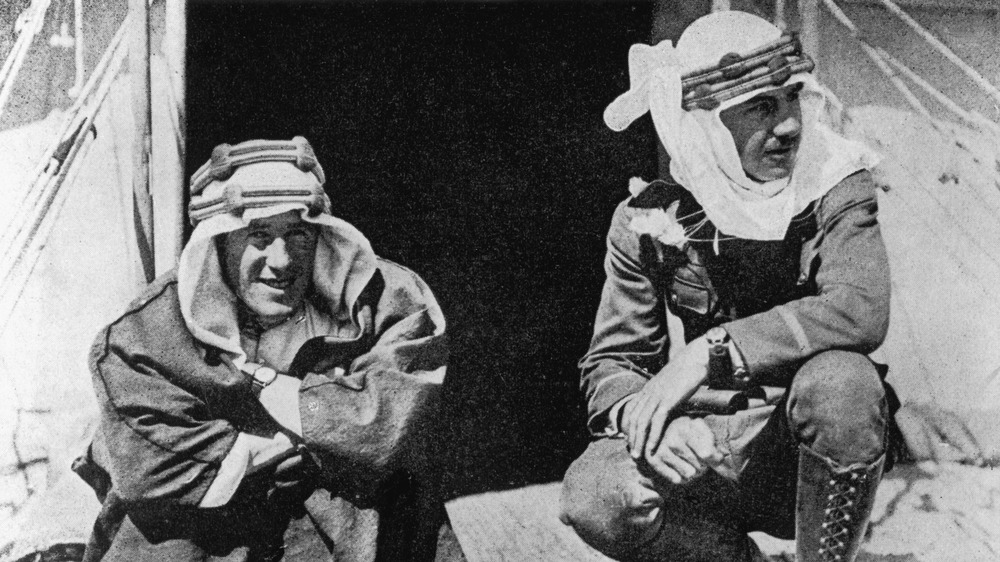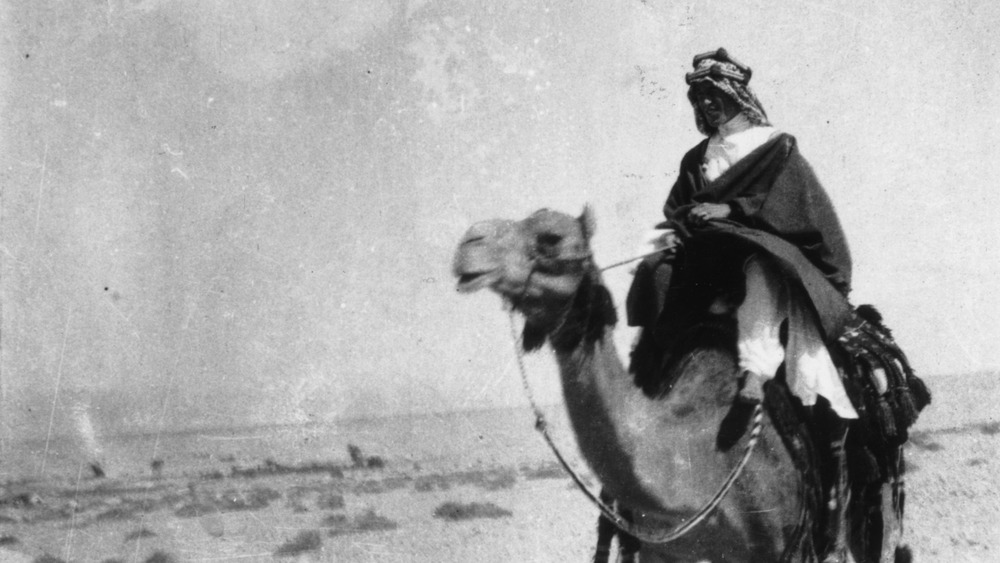Why Lawrence Of Arabia Was Forced To Execute Someone From His Own Band
At this point in history, Lawrence of Arabia may be more well-known by image than historical fact. This was also the case when Thomas Edward Lawrence (his real, birth name) was alive, as T.E. Lawrence built himself into a legend through his 1922 autobiography, The Seven Pillars of Wisdom. In this book, Lawrence recounts adventures, escapades, and death-defying self-mythologizing during his time as a British intelligence officer working to take down the Ottoman Empire during World War I. And thanks to the 1962 epic film starring Peter O'Toole, it's even more difficult to separate fact from fiction. If everything Lawrence said about himself was true, then he's easily one of the top contenders for the actual "most interesting man in the world" prize.
As stories go, Lawrence was an 1888-born Englishman who, while studying archaeology at Oxford, first traveled to modern-day Syria and Palestine in 1909, where he was shot at, robbed and beaten while on a 1,000-mile journey. In 1914, as History tells us, he was hired by the British military to survey Ottoman territory to strategize how to destabilize their empire. Once the war started, he enlisted, and although he had no formal battlefield training, planted himself among Bedouins of the Arab uprising and trained them in guerrilla warfare. He was captured at one point, tortured, sodomized, freed by a sympathetic doctor, and wound up becoming a key player in the conquering of Damascus.
And at some point, he was forced to execute one of his own.
Gold and tribal knowledge meant power
All of this sounds grandiose, possibly outlandish, but not totally unbelievable. The most historically circumspect aspect of these shenanigans — the capture and release — remains unsubstantiated, although as outlined by Britannica, the rest more or less conforms to corroborated fact. Basically, Lawrence of Arabia sounds like Indiana Jones turned desert freedom fighter and, of course, White Savior. Maybe this is part of the reason why his tales sound dubious — he not only got in good with some British-backed insurgents, and joined their ranks, but wound up leading them. This is quite a feat, considering the ethnic, cultural, and tribal nuances of the region, which have only been compounded since then; the Middle East's post-Ottoman nations were divided up in the Sykes-Picot agreement without regard to any of these factors. Or, maybe it was simpler than that. After all, Lawrence represented the wealth and military might of England, which was funneling tens of thousands of pounds in actual gold to the Arab rebels through Lawrence, as Smithsonian Magazine states.
Both Lawrence and Prince Feisal bin Hussein bin Ali, with whom he shared command, regularly doled out gold to their rebel fighters to keep them on board. Together, they "raised some 14,000 Harb tribesmen, 11,000 Beni Salem villagers and 9,000 Juheina" from among Bedouin tribes, as HistoryNet tells us. Tensions were always high, bickering never ceased, discipline was lacking, honor was always at stake, and blood feuds were rampant.
Executing one of his own to keep the rebellion whole
On January 3, 1917, Lawrence led his first desert raid against Turkish forces. A mere six months earlier, in June, 1916, two years after the start of World War I, King Hussein of the Hashemite clan in Hejaz, western Arabia, declared an official revolt against the Ottoman Empire. Guerrilla warfare ensued, with Lawrence embroiled in the middle, acting as both liaison to England and mediator between rebels of varying tribes. Under these circumstances, and in the harsh desert heat, Lawrence made a command decision that would haunt him for the rest of his life.
As far as we know, he set off on camel back in the middle of the night with a small raiding party of 35 men. They scaled a slope near a Turkish encampment, took aim from a cliff, and laid down gunfire until they were forced to flee. By chance, they came across two Turkish soldiers on the way back to camp, and captured them. Sometime after this there was a disagreement between the Bedouins, and a full-blown blood feud was at risk of breaking out. To quell the conflict, and prevent the insurrection from splitting apart from within, Lawrence had to execute one of the members of his party. Moreover, it seems like he had to do it personally, perhaps as a gesture of responsibility to his role, or maybe as a neutral party in the conflict. Exactly what happened, though, and how, are unknown.


